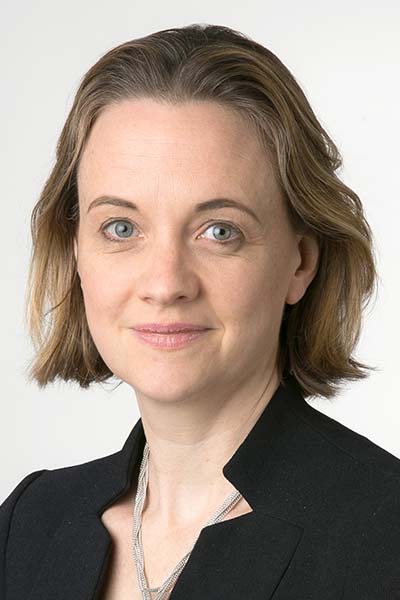
With lung cancer treatment evolving in response to new trends—from the wider use of immunotherapies and targeted drugs to increased patient longevity and the challenges of COVID-19—the time has come to re-evaluate the role of radiotherapy.
That concept will drive a joint educational session at WCLC 2022 hosted by the IASLC and the European Society for Radiotherapy & Oncology (ESTRO). “Integration of Radiotherapy for Optimal Patient Outcomes” will begin at 14:30 CEST on Sunday, August 7, in Hall C8 and will be moderated by Alexander Louie, MD, PhD, a clinician scientist with the Sunnybrook Health Sciences Centre in Toronto, and Fiona McDonald, MBBS, MA, a consultant clinical oncologist with the Royal Marsden in the United Kingdom. A panel discussion will be followed by a 10-minute Q&A, and a recording of the session will be available on-demand via the conference’s virtual platform within 24 hours.
Dr. Louie believes the session will be valuable not only to radiation oncologists but to other members of the multidisciplinary team who want to “keep up to date on what’s evolving beyond their own silos” in both SCLC and NSCLC.

Joint ESTRO Session: Integration of Radiotherapy for Optimal Patient Outcomes
- Time: 14:30 – 15:30 CEST
- Date: Sunday, August 7
- Location: Lehar 1
- Moderators: Alexander Louie, MD, PhD; Fiona McDonald, MBBS, MA
“As medications for lung cancer rapidly evolve, where radiation best fits needs to be considered from a safety and synergy point of view,” said Dr. Louie, who is deputy chair of the IASLC’s Advanced Radiation Technology (ART) Committee. “Research suggests a potential role for radiotherapy in very early lung cancer as an alternative to surgery. We are also seeing radiotherapy applied more across all stages of lung cancer in the setting of COVID-19 due to its convenience as a predominantly outpatient treatment that doesn’t require anesthesia and can be fairly easily scheduled.”

Evaluating Radiotherapy Across Lung Cancer’s Stages
During the session, panelists will discuss:
- The role of radiotherapy in the immunotherapy era for resectable NSCLC. The applications for post-operative radiotherapy are being reconsidered in this setting, said Dr. McDonald, who chairs the ART Committee and the ESTRO Guidelines Committee.
- How biomarkers may help in the management of unresectable stage III NSCLC. With blood biomarkers now available to assess minimal residual disease status, a key question is: “How will that change our follow-up and management of patients in the unresectable setting who are receiving concurrent chemoradiation?” she said.
- The challenge of pneumonitis in the multimodality radical treatment era. Because pneumonitis can be caused by both radiation and some novel lung cancer drugs, “we’re learning more about the combination of the two and how we’re going to better manage this condition,” Dr. McDonald said. “In some cases, that will involve a reassessment of the various treatments.”
- The increasing role of re-irradiation and related safety concerns. “As we more frequently give stereotactic radiotherapy in metastatic disease, and as patients are living longer and getting imaged more often, many individuals are increasingly coming back to us for additional treatments,” she said. “What new lessons are out there that will help us do this safely?”
Choosing the best strategies to treat early-stage lung cancer is increasingly tied to understanding the molecular drivers of a patient’s disease, so getting that information as quickly as possible is essential, Drs. Louie and McDonald agreed.
“We now need EGFR and PD-L1 results up front for radical treatment decisions,” Dr. McDonald said. “This has important implications for pathology pathways and turnaround times to avoid treatment delays.”
This session will also explore how biomarkers can be incorporated in the locally advanced setting when radiation becomes the primary treatment modality.
Before the session on Sunday, from 10:00-10:45 CEST, Drs. Louie and McDonald will be on hand during an IASLC Committee Corner to chat with conference attendees.





